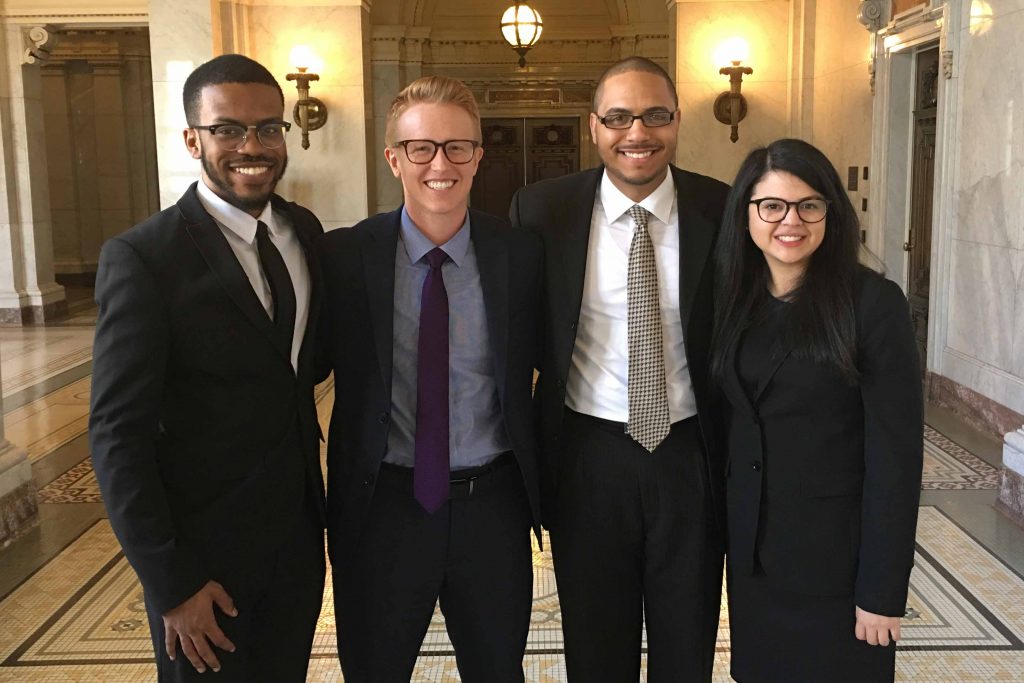Four BC Law students presented oral argument to the Ninth Circuit Court of Appeals on April 10. They did so as part of the five-year-old BC Ninth Circuit Appellate Program, which provides pro bono representation to non-citizens with criminal convictions.
Third-year law students Wagner Soto and Tina De Fex represented a lawful permanent resident who had been in the country since he was five years old. Smith Pena-Rojas was deported after he was convicted of a robbery offense. The students presented a highly technical legal argument, requiring a deep understanding of state criminal law and Supreme Court precedent. They argued that the state crime was not a match to the deportability ground.
Kelsey “KG” Gasseling and Andrew Snow also represented a lawful permanent resident who had been ordered deported after being convicted of violating the Travel Act, a federal racketeering statute. The issue before the Court was whether the offense was a drug crime, which would be a proper basis for deportation or a racketeering crime, which is not. The students had mastered Supreme Court precedent and complex jury instructions to advance arguments to contend that the conviction is not a proper basis for deportation.
“Wagner, Tina, KG, and Andrew were outstanding with their presentations,” said Assistant Professor Kari Hong, who founded the clinic and supervised the students. “All four were subjected to tough questioning and were calm and collected in providing the judges with cases and arguments to address their concerns.”
At the end of the arguments, one of the judges thanked the students for “excellent arguments” and “all of the fine work” that what went into the briefing.
The Court will issue decisions at any point in the next year.
To prepare for argument, more than 30 faculty members, local practitioners, and alumni of the clinic mooted the students and offered invaluable substantive advice and guidance on how to present very difficult and complex legal issues.
The Ninth Circuit is unique among the federal circuits to offer a law school clinical program that sets a case to the academic school year. A team of students start working on the case in June, file opening brief in October, a reply brief in February, and present oral argument in April. This is the fifth year that BC has been participating in this program.
The program has prevailed in six of the seven cases it has presented, obtained three published decisions, and is waiting for decisions in three more cases. Hong founded the program to provide experiential learning opportunities to students and highlight a flaw in the immigration system that treats hundred of crimes the same, failing to take into account that state and federal judges consider specific offenses not serious or deserving of probation instead of incarceration. The clinic’s mission is represent those who have been deported with a hope that that the representation will restore proportionality and common sense into the immigration consequences of criminal convictions.
Watch video of the Smith Pena-Rojas session here and the Zaldy Myers v. Sessions presentation here.
Photo, from left: Andrew Snow, KG Gasseling, Wagner Soto, and Tina De Fex


